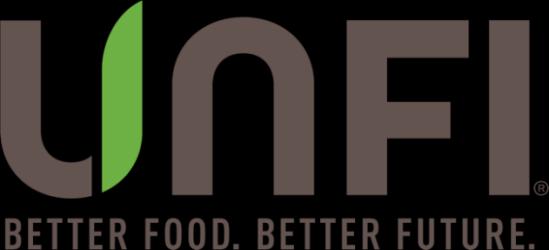









UNFI is deeply committed to food safety and regulatory compliance, and we strive for excellence by driving continuous improvements. Our food safety vision is to have a world class food safety management system that achieves the highest level of industry standards and exceeds consumer expectations.
If you have any questions about the below requirements, please reach out to FoodTraceability@unfi.com.

As we prepare for the implementation of FSMA Rule 204, or the Food Traceability Rule, we’ve outlined supplier requirements to ensure we’re effectively tracking the products on the Food Traceability List (FTL).
UNFI will begin enforcing these data sharing requirements prior to the U.S. Food and Drug Administration’s (FDA) go-live date of July 20, 2028.
We are currently working with our customer and supplier communities to assess readiness for the FDA’s Food Traceability Rule UNFI plans to be compliant before July 20, 2028. Noncompliance will be addressed in a future volume of our requirements guide.
The requirements in this guide will only apply to products on the Food Traceability List (FTL). These requirements apply to all lines of business across UNFI. Throughout the guide, we’ve included additional considerations for Brands+ or Direct Store Delivery (DSD) suppliers.
• Advanced Shipping Notifications (ASNs) are required to be leveraged, either via EDI or via UNFI’s Traceability Portal, to digitally share Key Data Elements (KDEs).
• Pallet tags, specifically Serial Shipping Container Codes (SSCC), are required when shipping products on the FTL.
• Case labels, specifically GS1-128 case labels, are required when labeling products on the FTL.
• Delivery documents, specifically Bill of Ladings (BOLs), are required to include KDEs when shipping FTL products.
The following pages provide details on these requirements. Questions?

All FTL items sold to UNFI will need to have data shared digitally through Advanced Shipping Notifications (ASNs). You can reference the Key Data Elements table below to see which KDEs are required to be shared via ASNs. Have questions?
There are two ways to share ASNs with UNFI:
1. Sharing ASNs via Electronic Data Interchange (EDI)
If your business is utilizing EDI, UNFI is adhering to the ASN 856 standard. Review GS1 EDI Standards to learn more.
If your business has EDI technology but does not send ASNs via EDI to UNFI today, UNFI will contact you in the coming months to enable ASN capabilities.
UNFI recommends enabling EDI technology as a best practice. Learn more.
If your business does not have the capability to use EDI currently, we recommend you work with one of UNFI’s Value-Added Network (VAN) partners: SPS Commerce, Edict or True Commerce.
2. Sharing ASNs via UNFI’s Traceability Portal – Coming Soon
This portal will provide alternative data sharing options for suppliers unable to share data through the EDI options listed above.
Brands+
Retail DSD
Brands+ suppliers, especially those who ship product to third party warehouses, should expect additional information on enabling ASNs.
Retail DSD suppliers are asked to also share an ASN 856. Our valueadded network partner for retail suppliers is SPS Commerce.

Pallets carrying items on the FTL should be correctly labeled with the specifics below. The Serial Shipping Container Code (SSCC) should be included on pallet tags. This is a GS1 standard and a traceability best practice to use when shipping items on the FTL.
UNFI will be creating a Labeling and Packaging Guideline to assist you in aligning with upcoming requirements. This resource is intended to serve as a general reference, offering examples and best practices to guide your preparations. Please note that each supplier is responsible for ensuring that their company’s specific labeling and packaging needs are fully addressed in accordance with the FSMA 204 rule. Have questions?
1. SSCC Application identifier (00) and scannable barcode.
2. Pallet tags should also provide the ship-from, ship-to addresses, and the purchase order (PO) number.
3. In addition to the above data points, please reference UNFI’s Handling and Packaging Guide on UNFI’s pallet tag standards.
More information on SSCC pallet tags is available on the GS1 website.
• If a pallet is built containing multiple lot codes, please separate the lot codes where possible.
• Lot codes should be visible without breaking down the pallet.
• Cases should be stacked with lot codes facing out of the pallet for easy validation.
Supplier Type Additional Considerations
Brands+ Brands+ suppliers should expect additional information on pallet tag requirements An updated UNFI Brands+ Packaging and Labeling Guide is available here

Retail DSD Though not all DSD suppliers deliver full pallets, if you do, please follow the requirements above.
Including scannable labels will allow for efficient case tracking of the traceability lot codes to the end retailer
UNFI will be creating a Labeling and Packaging Guideline to assist you in aligning with upcoming requirements. This resource is intended to serve as a general reference, offering examples and best practices to guide your preparations. Please note that each supplier is responsible for ensuring that their company’s specific labeling and packaging needs are fully addressed in accordance with the FSMA 204 rule. Have questions?
• GTIN: Global Trade Item Number (01)
• Any date: Pack date (11), expiration date (17), etc.
• Lot Code: Lot or Batch Number (10)
• For inner packaging of your products, we request that legible, human-readable lot codes are added in the form of laser-engravings, ink jetting, dot pen, or chemical etchings.
• Case labels should not be applied to the top or bottom of cases.
• Please try to avoid having multiple labels on the case
• Barcodes should be black on a white label. Please try to avoid printing barcodes directly on boxes.

Brands+ Brands+ suppliers should expect additional information on case label requirements. An updated UNFI Brands+ Packaging and Labeling Guide is available here.
Retail DSD As a DSD Supplier, it is important to take note of our inner packaging best practices listed above

All products on the FTL sold to UNFI will need to have physical data shared through the Bill of Lading (BOL). You can reference the Key Data Elements table below to see which KDEs are required to be shared via BOL.
UNFI will be creating a Labeling and Packaging Guideline to assist you in aligning with upcoming requirements. This resource is intended to serve as a general reference, offering examples and best practices to guide your preparations. Please note that each supplier is responsible for ensuring that their company’s specific labeling and packaging needs are fully addressed in accordance with the FSMA 204 rule. Have questions?
UNFI is requesting that all KDEs are included on BOLs, when possible.
• The data points below are critical for traceability.
o GTIN
o Traceability lot code
o Traceability lot code source OR traceability lot code source reference
• Many of the additional data points listed in the Key Data Elements table are already present in standard delivery documentation.
UNFI will not provide direction on how to enable these requirements It is our supplier’s responsibility to determine how to include KDEs into their BOL. We’ve included best practices shared by the FDA here on how to share KDEs in delivery documentation.
Brands+ There are no additional considerations from a Brands+ perspective, but suppliers should be sure to check out the Brands+ labeling guide available here.
Retail DSD Retail DSD Suppliers are asked to abide by the above requirements to support Retail receiving of items on the FTL.

Key Data Elements
Information Carriers
PO Number Required Required Required
Bill of Lading Required Required
Ship Date Required Required
Ship-From Location Required Required Required
Ship-To Location Required Required Required
GTIN Required Required Required Required
UNFI Item Number Required Required
Product Description Required Required
Traceability Lot Code Required Required Required
Traceability Lot Code Source (or)
Traceability Lot Code Source Reference Required Required
Country of Origin Required Required
Pallet Quantity Required Required
Case Quantity Required Required
Additional information on Key Data Elements can be found on the following page.

Global Trade Item Number (GTIN): The GTIN is a GS1 standard for items, providing a unique identifier that can be referenced across supply chain partners. Learn more
Traceability Lot Code: The Food Traceability Rule requires companies to transmit traceability lot codes, which are unique identifiers established within your organization. For best practices on establishing traceability lot codes or updating your company’s lot codes, you can find more information here.
We are requesting that suppliers share one of the two options below:
1. Traceability Lot Code Source Reference: This is UNFI’s preferred sharing option. Companies are asked to define the traceability lot code source reference, like a globally unique identifier such as a GLN or a DUNS.
▪ Global Location Number (GLN): A unique facility identifier that is supported by GS1, GLNs can be leveraged as your traceability lot code source reference. You can find more information on this option here
▪ Data Universal Numbering System (DUNS): Another unique facility identifier, supported by Dun & Bradstreet. You can find more information on this option here.
▪ The FDA defines additional options for sharing traceability lot code source reference here.
2. Traceability Lot Code Source: Companies are required to define this key contact information, which describes the location where the food was handled. This should include:
▪ The business name
▪ Phone number
▪ Physical address or geographic coordinates
▪ City
▪ State
▪ Zip code for domestic locations and comparable information for foreign locations, including country.
EDI Integration Guide

Packaging and Labeling Guide
EDI Integration is currently ongoing for Natural suppliers. Additional lines of business will be communicated to in the near future to begin their onboarding process.
UNFI Brands+ has released updated Packaging and Labeling Guides including details on traceability requirements.
UNFI will be updating our new item set up process to capture traceability data attributes and onboard new items to our digital data sharing options.
FTL Food Traceability List – The FDA’s
ASN Advanced Shipping Notification
EDI Electronic Data Interchange
KDE Key Data Element
SSCC Serial Shipping Container Code
GS1 Global Standards 1
BOL Bill of Lading
DSD Direct Store Delivery
PO Purchase Order
GTIN Global Trade Item Number
VAN Value-Added Network

Thank you for your collaboration in creating a safer supply chain for all.
We understand the impact that food traceability has on the supply chain and are advocating for achieving higher levels of food safety while minimizing impact to your business. UNFI developed these requirements to match industry best practices and standards and to limit challenges of working with UNFI.
Please reach out to the below resources with any questions.
• For general questions about food traceability and UNFI’s requirements, please refer to the UNFI Food Traceability FAQ Additional questions should be sent to FoodTraceability@unfi.com.
• For specific questions on ASNs and EDI, please reach out to SupplierEDI@unfi.com.
• For questions regarding UNFI’s Brands+ requirements, please reach out to FoodTraceability@unfi.com or your Brands+ representative.

